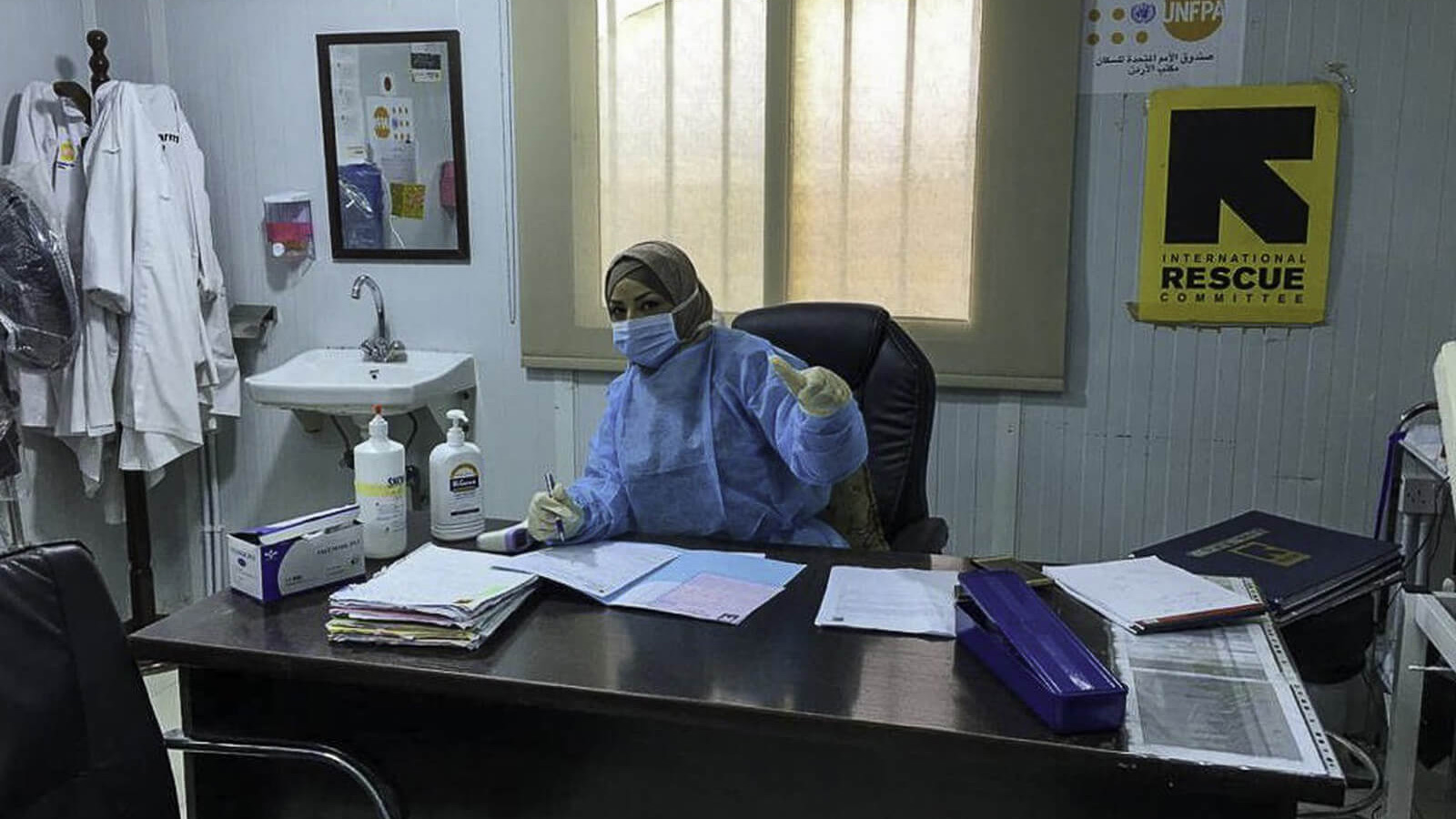Amid COVID-19 Global Pandemic, The Pfizer Foundation Helps IRC Pursue Urgent Expansion of Health Access in Humanitarian Settings

There are more displaced people today than at any other point in history.1
As part of Pfizer’s mission to ensure better health is possible for everyone, everywhere, The Pfizer Foundation has partnered with the International Rescue Committee (IRC), an organization that helps people affected by humanitarian crises to survive, recover, and rebuild their lives in over 40 crisis-affected countries, as well as communities throughout Europe and the Americas.
The IRC has decades of experience responding to urgent health situations—offering integrated immunization, family planning, and other essential health services that often are at risk of disruption during crises.
In recent years, COVID-19 has exacerbated existing vulnerabilities, putting the health of people living in fragile and humanitarian contexts at greater risk.
Throughout the pandemic, the IRC has seen life-saving health services disrupted across the countries where they work. This has been driven by a range of factors including already under-resourced health systems now overburdened by the direct impacts of COVID-19; increased fear and concern of the virus hindering health seeking behaviors; and the secondary impacts of the pandemic on peoples’ livelihoods and food security, among many others.2
At the onset of the pandemic, early media reports detailed alarming stories about local shortages of ventilators, ill-equipped intensive care units, and lack of personal protective equipment. In many developing countries, those shortages existed before coronavirus. An April 2020 IRC report found that nearly half (46%) of people in South Sudan, Syria, Venezuela, and Yemen lack access to even the most basic and essential health services.2
Making matters even more challenging, many refugees, displaced persons, migrants, and other marginalized populations live in informal, overcrowded settlements where basic health measures, like physical distancing or regular hand washing, can be nearly impossible.
For example, the population in al-Hol camp in Syria increased seven-fold in 2019 to 68,000 people residing within a total area of just 1.82km2. This makes it almost four times more densely populated than New York City, significantly increasing the risk of a COVID-19 outbreak that would spread with lightning speed.2
With financial support from The Pfizer Foundation, the IRC has been able to provide quality health services to more than 50,000 people, including ante- and post-natal care, family planning, routine immunization for children under five, and community education sessions on many health topics, including COVID-19.
"While COVID-19 has wreaked havoc globally, refugees and displaced populations are suffering disproportionately,” says Caroline Roan, President, The Pfizer Foundation and Vice President, Global Health and Social Impact, Pfizer Inc. “Through our longstanding partnership with the International Rescue Committee, they have been able to provide immediate relief to some of the most underserved and hardest-hit communities facing the health risks of the COVID-19 pandemic.”
The Pfizer Foundation’s work with the IRC is part of a larger commitment to humanitarian relief at home and across the globe. The Pfizer Foundation has provided a grant to support the United Nations Refugee Agency (UNHCR), for example, and their work with governments and partners in Colombia and Bangladesh to strengthen critical health, protection, and outreach measures in response to COVID-19.
The IRC and The Pfizer Foundation have also collaborated with the Jordanian Ministry of Health to launch an innovative health delivery model and recently published a report on lessons learned from the humanitarian health response in Jordan, as well as in Bangladesh and Chad.
“There are more displaced people today than at any other point in history, underscoring the importance of creating inclusive health policies that address both the immediate and longer-term needs of vulnerable populations,” says Dr. Mesfin Teklu Tessema, Senior Director of Health at the IRC. “Support from The Pfizer Foundation has enabled the IRC to deliver critically needed health services, as well as to demonstrate what is needed to truly ensure equitable access to health for all.”
“These are not normal times,” says Roan. “We know our partners are relying on us to support their critical work to fight COVID-19 around the world – especially in vulnerable settings. We are committed to helping however we can and are proud of the work and commitment of the IRC.”
The Pfizer Foundation is a charitable organization established by Pfizer Inc. It is a separate legal entity from Pfizer Inc. with distinct legal restrictions.
References:
1. International Rescue Committee. (2021). (rep.). Equitable Access to Health Service: Lessons for Integrating Displaced Populations into National Health Systems. Retrieved from https://www.rescue.org/sites/default/files/document/5846/equitableaccesstohealthservicesfinalreportapril2021.pdf
2. International Rescue Committee. (2020). (rep.). COVID-19 in Humanitarian Crises: A Double Emergency. Retrieved from https://www.rescue.org/sites/default/files/document/4693/covid-19-doubleemergency-april2020.pdf
10.30.2024
10.24.2024
10.15.2024
10.01.2024
09.20.2024